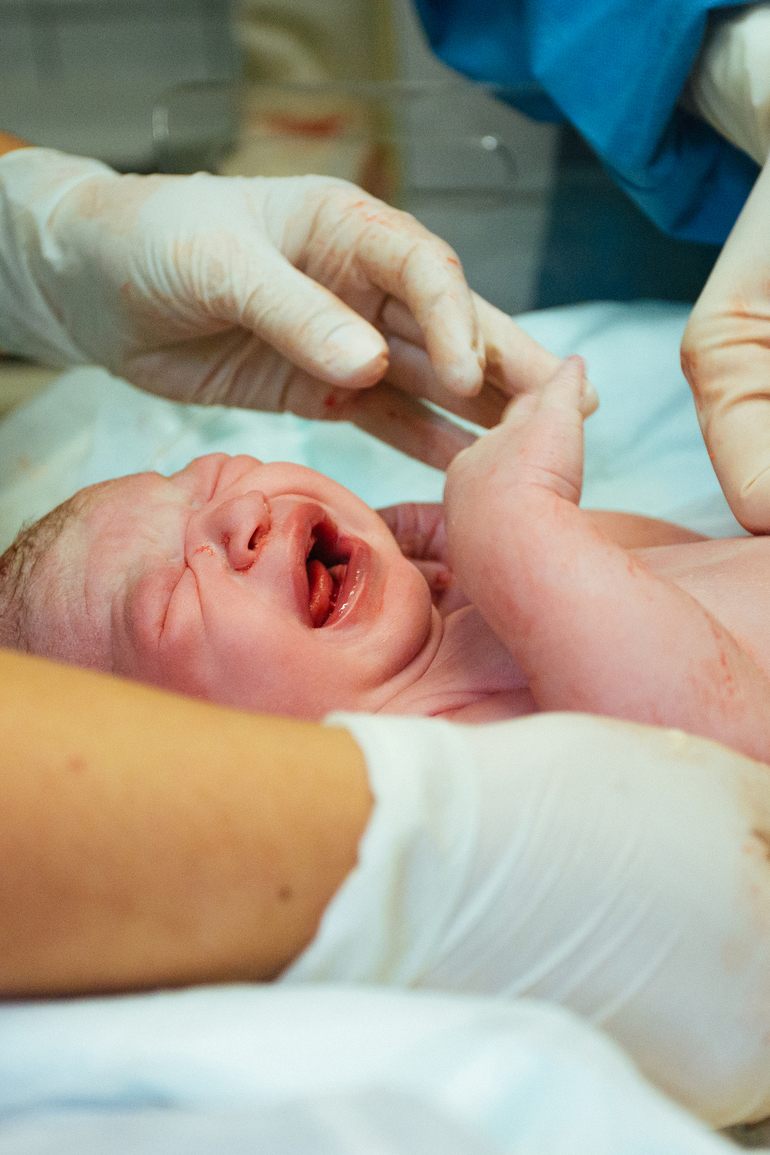Pregnancy can be a lot of fun.
You have a new wardrobe of maternity clothes to style, that infamous pregnancy glow, and a built-in excuse to beg your partner for a foot massage every night! But pregnancy also includes a lot of responsibility — like choosing the best baby name ever, taking those prenatal vitamins, and regular check-ups with an Ob/Gyn, to name a few.
At some point during one of those pregnancy check-ups, your Ob/Gyn or healthcare provider will likely have you do a glucose challenge test.
What that is, why it’s necessary, and when to expect it are all very normal questions – so keep reading for all the 411 on the glucose test as a pregnant woman below.
What Is the Glucose Challenge Test?
So, your doctor says it’s time to do a glucose test, also called the one-hour glucose tolerance test. What exactly does that mean?
“Glucose challenge test” is a pretty intimidating name, but in fact, the oral glucose tolerance test isn’t the worst (but still not anyone’s idea of a fun time). Just like people trying to touch your bump, glucose tests are generally an expected part of your nine months of growing a baby.
The purpose of this test is to screen for gestational diabetes mellitus, and it’s an important step toward a healthy pregnancy and overall wellness.
First, your OB/GYN or healthcare provider will provide a glucose solution for you to drink to determine how your body responds to carbohydrates. An hour after the glucose drink, they will draw a blood sample and measure your blood glucose levels.
Based on the blood sugar levels measured in your blood test, your doctor may give you the all-clear, or they may recommend further testing due to high blood sugar.
Who Needs To Have a Glucose Test?
It might be surprising to hear, but the majority of women will have a glucose test to screen for gestational diabetes during pregnancy. (Like we said: a V normal part of pregnancy!) According to experts, women who are at very low risk for gestational diabetes may not need to be screened.
That includes women who:
- Are younger than 25 and do not fall into the obesity category
- Do not have a family history of diabetes
- Do not show any signs of prediabetes
- Do not have high blood pressure
- Are part of a group that doesn’t have a high risk for type 2 diabetes or another type of diabetes
- Have not had pregnancy complications in the past during a previous pregnancy
- Have never had a high blood glucose test result in the past
Most other women will be screened between 24 and 28 weeks of pregnancy. However, if you’re at a higher risk of developing gestational diabetes, your OB/GYN may recommend a screening within your first trimester.
How Can You Prepare for the Glucose Test?
The glucose test isn’t like other exams — almost no preparation is needed!
Your doctor will likely recommend you follow your regular diet in the days leading up to the test. If you take any medications, be sure to ask your doctor how they may affect your test results (as well as ask any other questions you may have about the exam).
If your blood glucose test results come back higher than average, your doctor may ask you to come back for the three-hour test before making a diagnosis.
To prepare for this second test, your healthcare provider will likely ask you not to eat or drink anything aside from water eight to 14 hours before the test. This time, they will draw your blood before you drink the sugar solution, as well as three more times afterward. The whole process should take approximately two to three hours.
Getting screened for any disease may feel anxiety-inducing, especially when it involves your growing little one. One of the best ways you can prepare for this test is to practice self-care before and after.
Remember that the glucose test is simply another routine part of pregnancy, like dealing with stretch marks and choosing a color scheme for the nursery.
And whatever your results are, it’s important not to shame yourself – gestational diabetes affects thousands of women every year and is totally manageable! It definitely doesn’t make you any less of a rockstar, mama.
Other Common Screenings During Pregnancy
Getting a screening at the doctor’s office, whether it be the glucose test or another, will likely become as routine to you during pregnancy as putting on your coziest maternity PJs at night.
During your first trimester, most of those screenings will likely be done via ultrasound (AKA no needles). However, during the second trimester, prenatal visits to the doctor’s office may require more extensive testing. Other times you may have your blood drawn to check for certain proteins and genetic markers that can provide health insights.
You’ll also have regular ultrasounds throughout your pregnancy. Watching your baby grow from the size of a peanut to a pineapple on those ultrasounds can be some of the most magical moments of pregnancy. Plus: the pictures are absolutely scarp-book-worthy!
The Bottom Line
Pregnancy is a journey that is full of cute moments, like your baby’s first kick or opening maternity gift sets at your baby shower, and more routine moments, such as getting your glucose tested.
Gestational diabetes is pretty common and usually goes away after pregnancy. The glucose test is the same way. It’s just another part of the routine tests that help your medical team keep you and your baby as healthy as possible.
Motherhood is a priceless experience, but there’s a lot to navigate — whether it’s your first pregnancy or your third, there’s always something new. For answers to your most burning pregnancy questions, check out our Babe Blog.
Sources:








